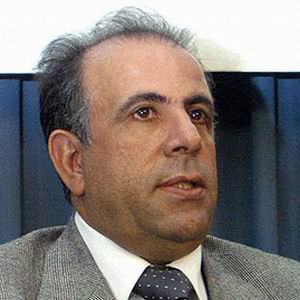UN General Assembly: A Venue to Bring up Objective Issues
An interview with Yousef Molaei, instructor, University of Tehran

The address by IRI President Mahmoud Ahmadinejad at the UN General Assembly this week triggered reactions from American and Israeli officials as well as the Democratic presidential hopeful in the United States.
An interview with Yousef Molaei, instructor, University of Tehran:
The address by IRI President Mahmoud Ahmadinejad at the UN General Assembly this week sparked reactions from American and Israeli officials as well as the Democratic presidential hopeful in the United States. In his 30-minute address at the UNGA, Ahmadinejad said “the American empire is nearing the end of its road.” He also said today Israel was on a definite slope to collapse. In this way, Ahmadinejad reiterated the points he had mentioned in his three previous addresses at the United Nations General Assembly.
Iranian Diplomacy has interview Dr. Yousef Molaei, an instructor at the University of Tehran and an expert in law and international relations.
Q: What is your assessment of IRI president’s UN address and the strong reactions it triggered?
A: A major part of the president’s address was devoted to his perspectives about world view as well as religious, ideological, and philosophical issues. In his speech, Mr. Ahmadinejad called on the audience to join him in following the path of the Almighty and take the course of justice. This part of his address was an expression of his personal views and mere theosophy before being political and diplomatic. There is nothing wrong with these argumentations but their place is not at the UN General Assembly. He should have taken the most advantage of the opportunity to discuss Iran’s objective issues which the world wants clarifications about, such as the nuclear issue, regional security, the US presence in Iraq and its repercussions, the existing problems in the region and the role Iran can play in settlement of these issues. These are objective topics which the world nations want to know more about and get further familiar with Iran’s technical views in this respect. General reference to outlooks is not effective. Instead, we need to raise the issues in an objective manner and offer details and solutions. Unfortunately, there was no objective approach in the president’s address so that it would leave a positive impact on the world public opinion about Iran.
Q: What topics do you think could have been included in Iranian president’s address?
A: Unfortunately, little time was allocated to objective issues Iran is facing. There was a pivotal question regarding the end of the road for Zionism and the American empire which prevented due attention be paid to important issues of the Iranian society. Perhaps, the president is not so familiar with the potentials and requirements of an address at the UN General Assembly. Mr. Ahmadinejad’s address at the United Nations was quite similar to his speeches inside the country.
Q: According to the international convention, what type of issues world leaders are expected to discuss in their addresses at the annual sessions of the UNGA?
A: Addressing the UN General Assembly is an opportunity for exchange of views. Cooperation for the cause of peace as well as international security are specific scopes of work at the United Nations. In their addresses at the annual session of UNGA, world leaders cite examples that violate global peace and security and offer solutions for their settlement. On special occasions, some may give priority to important issues their countries are faced with such as the environment and so on. They would also try to get other countries acquainted with the perspectives of their own country about global issues and promote their status in global decision makings by discussing new ideas. It may sound logical to bring up many issues but they need to be discussed in their appropriate place by taking into account the psychology of different outlooks. Iran is an important power as far as regional issues are concerned and can attract the attention of the world by offering solutions to the regional crises. The important thing is to be more objective.
Q: Is it normal for speakers at the UN General Assembly to insult others, threaten them or level charges?
A: There is no restriction for speakers at the UN to say whatever they want. However, there is some sensitivity which must be observed in the addresses. We cannot talk in favor of genocide or slavery at such forums. Usually, a country may take a negative stance against another country by observing the technical principles of diplomacy but direct insult is undiplomatic.

